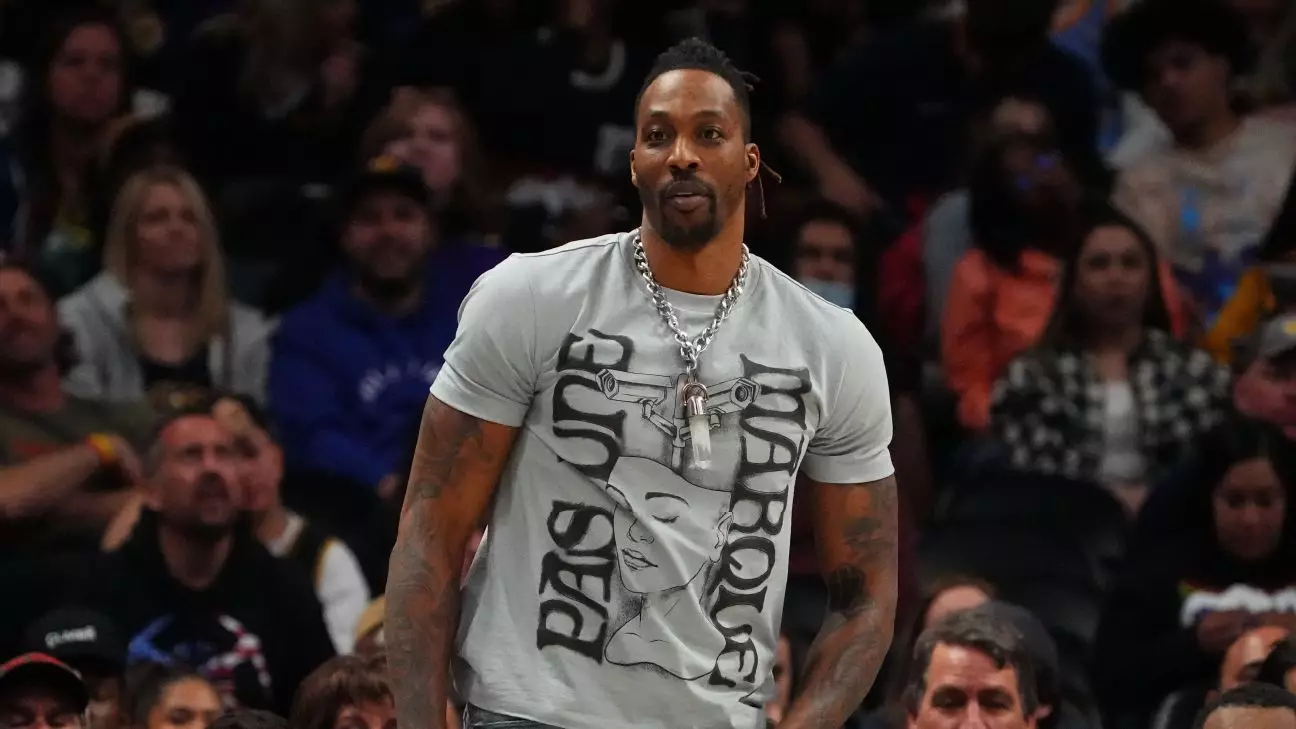In the world of professional sports, trust often takes a backseat to ambition, leading some individuals to exploit the vulnerabilities of others. Calvin Darden Jr., a businessman from Georgia, epitomizes this dark reality. Recently convicted on multiple counts of fraud, including bank fraud and money laundering, Darden’s elaborate schemes targeted prominent former NBA players, particularly Dwight Howard and Chandler Parsons. Their combined loss of $8 million encapsulates a chilling narrative of betrayal within a high-stakes environment.
Darden’s venture into deceitful practices was not an isolated incident; it was part of a broader conspiracy involving former NBA agent Charles Briscoe. During a two-week trial in Manhattan, compelling evidence illustrated how Darden deftly maneuvered through financial transactions under the guise of legitimate business dealings. The case against him revolved around the manipulation of trust during sensitive financial negotiations. For instance, Darden managed to convince Howard that a $7 million payment was intended for acquiring the WNBA team, the Atlanta Dream. However, he quickly diverted this money for personal luxuries, marking a stark departure from the trust placed in him.
The courtroom proceedings revealed not only Darden’s duplicitous actions but also the fragile nature of wealth management among athletes. With Howard’s funds allegedly funneled into extravagant purchases like a Lamborghini and a lavish home, it showcased the potential pitfalls when individuals do not scrutinize those they entrust with their financial futures. As the jury adjourned after five hours of deliberation, the outcome served as a reminder of the personal and financial repercussions of misplaced trust.
Furthermore, the government, anticipating a stringent penalty for Darden, has indicated a desire for an 11 to 14-year sentence. This potential punishment signals the seriousness with which cyber and financial fraud is treated, particularly as it pertains to the elite within society. Previous convictions, which assigned Darden sanctions for past fraud in 2016, reinforce the idea that deception was not a one-time offense, but a pattern of behavior he chose to maintain.
The conviction of Darden carries implications that reach beyond his individual case. It reflects a systemic issue prevalent within the sports industry, where financial advisers and agents can prey on the unsuspecting nature of young, wealthy athletes. As individuals like Darryl Cohen, a former Morgan Stanley adviser, prepare for trials in connection with similar fraudulent activities involving athletes like Jrue Holiday, it raises the question of whether enough measures are in place to protect these individuals from becoming victims.
Calvin Darden Jr.’s fraudulent activities and subsequent conviction underline the necessity for greater transparency and accountability in the management of athlete finances. As high-profile cases continue to emerge, all stakeholders, from athletes to their representatives, must prioritize vigilance and integrity. Their financial futures deserve protection from predators lurking in the shadows, capitalizing on their trust and naivety. Ultimately, the pursuit of wealth should occur on a foundation of honesty, ensuring that the dreams athletes strive for are not overshadowed by betrayal.


Napsat komentář